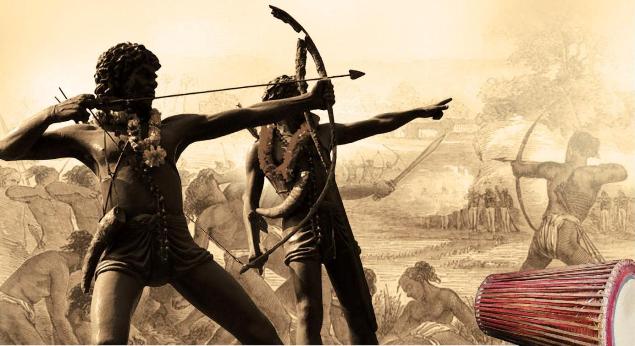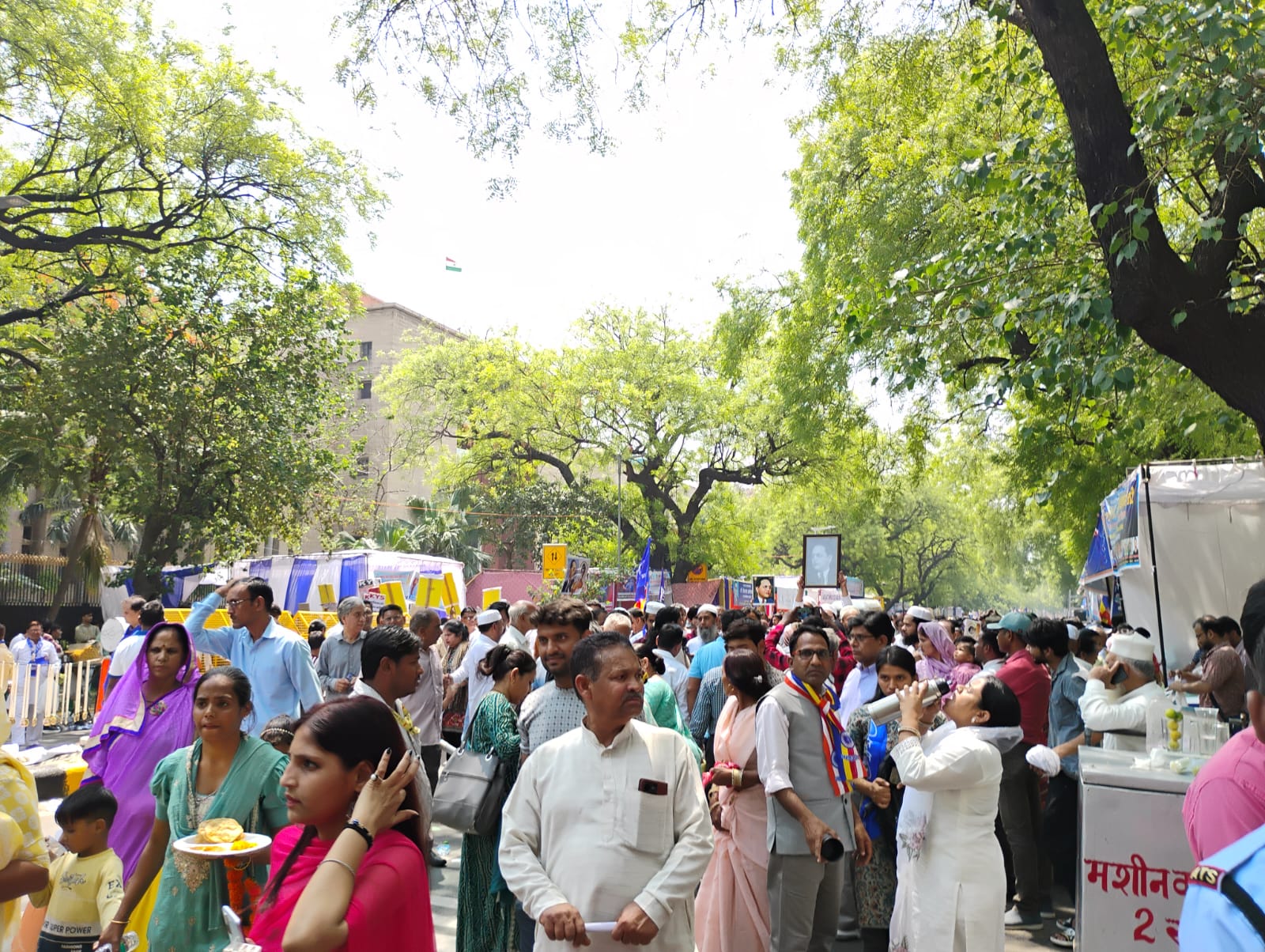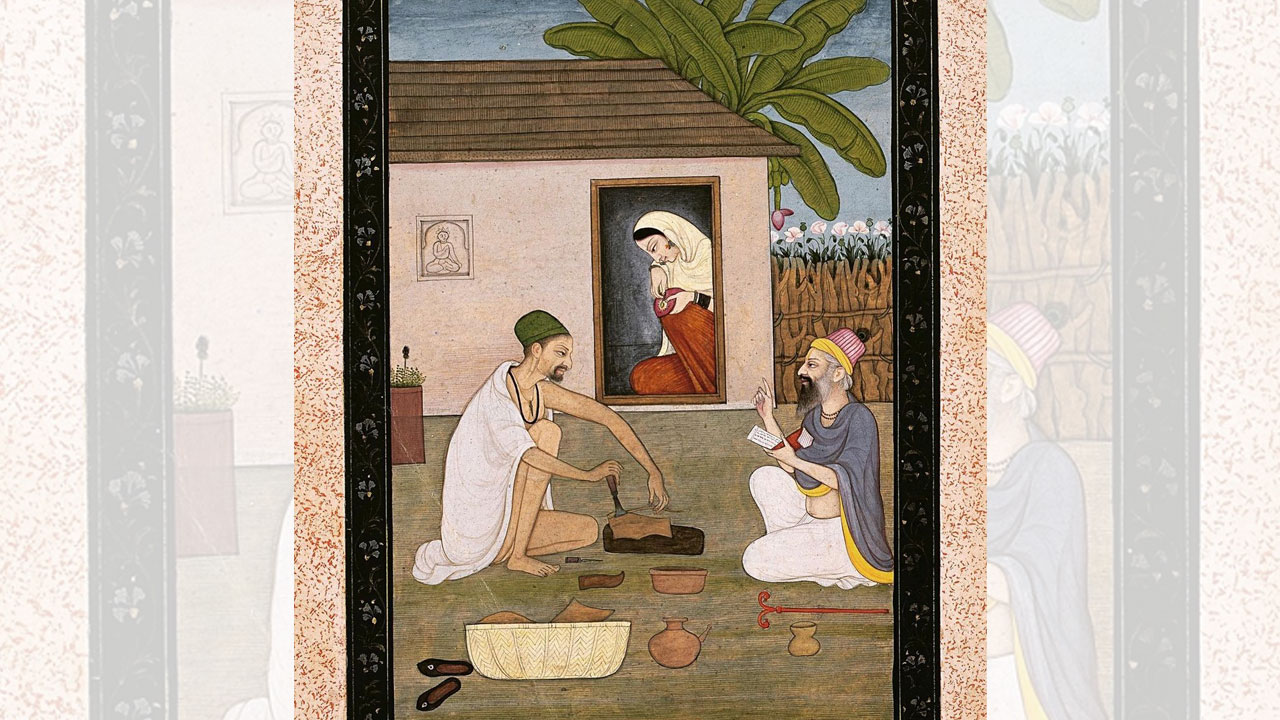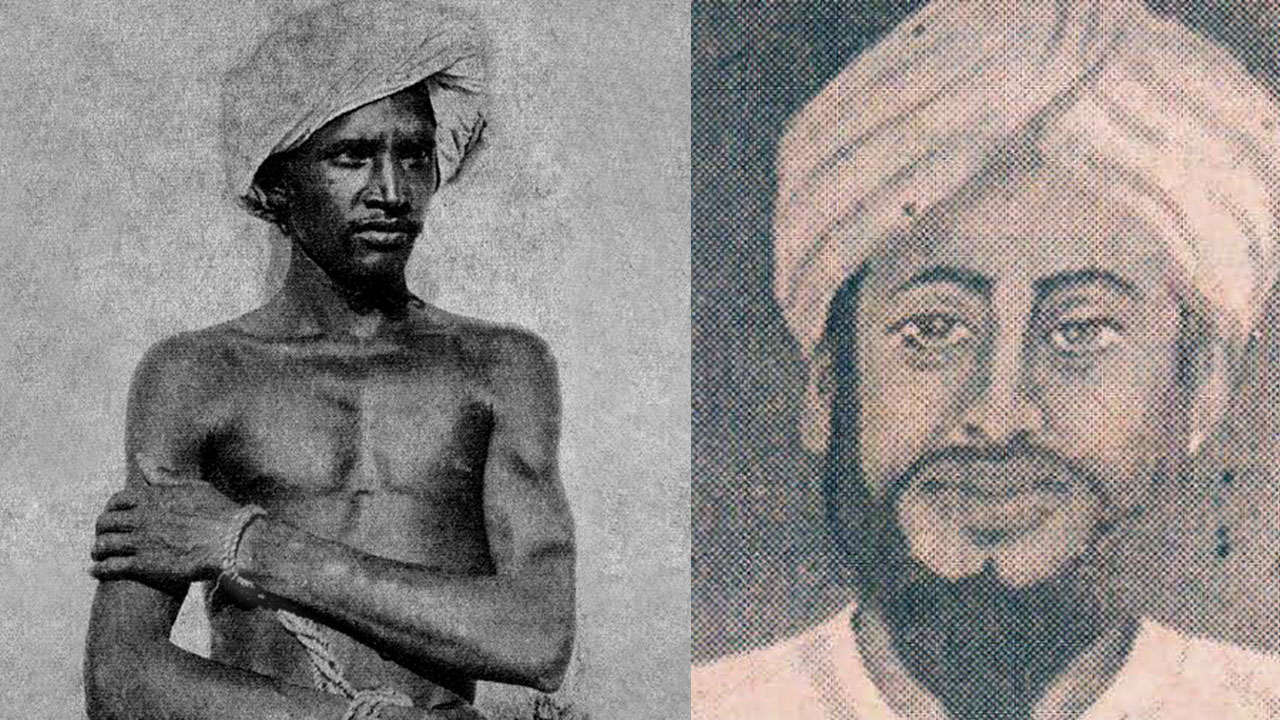At the time when Swami Acchutanand ‘Harihar’ was leading the Adi Hindu movement among the Dalits, a Backward class writer of Lucknow, Chandrika Prasad Jigyasu, joined the movement. Jigyasu’s biggest achievement was that he came out with the concept of ‘Bahujan’ to bring Dalits and Backwards on a common platform. Jigyasu was the first to introduce the common man to the revolutionary thoughts of Kabir, Raidas, Phule, Periyar and Ambedkar. He got many of Ambedkar’s important books translated from English to Hindi. He set up his own publishing house and printing press to spread the message of Bahujans among the masses. He founded many social organisations and authored upwards of 100 books.
While traversing the length and breadth of the country along with the activists of the Hindu movement, he saw the real, dreadful face of the Brahmanical and feudal society by coming into contact with its victims. This experience transformed him. He resolved to struggle against the Varna system and caste-based discrimination and to build an egalitarian society. The Adi Hindu movement was so powerful that it won recognition amongst the Backward castes. Jigyasu himself hailed from a Backward caste (Kalwar). Many other leaders of the Backward castes also joined the movement. They included Shivdayal Singh Chaurasia, Ramcharan Nishad and Chaudhary Bhayamal Dhobi. Among them, Jigyasu was the most brilliant thinker and gifted writer.

North India’s first Depressed Classes’ Federation came into being at Nagpur in 1928 under the chairmanship of Dr Ambedkar. In Uttar Pradesh, Rai Saheb Ramcharan Nishad was made the president, Shivdayal Chaurasia the general secretary and Chandrikaprasad Jigyasu the convener of the Federation. Bodhanand was named the patron. Bodhanand was a Bengali Brahmin but he was a strong opponent of the Varna system and Brahmanism. He worked among the Dalits and later embraced Buddhism and became famous as Bhadant Bodhanand Mahasthivir. Jigyasu considered Bodhanand his guru. Bodhanand could not write by his own hand because of a dysfunctional thumb. Therefore, he used to dictate to Jigyasu, who wrote down Bodhanand’s book ‘Mool Bharatvaasi aur Arya’ (Original inhabitants of India and the Aryans). Drawing inspiration from this book, in 1933, Jigyasu wrote a bulky book volume entitled ‘Bharat Ke Aadi Niwasi’ (Original inhabitants of India).
Jigyasu founded an organisation named Hindi Samaj Sudhar and under its aegis, he launched an awareness campaign against Varna system, caste-based discrimination, untouchability and Brahmanism. This organisation published many of his books including ‘Ishwar Aur Unke Gudde’ (God and his puppets) and ‘Ravan Aur Uski Lanka’ (Ravana and his Lanka). His biggest contribution was the concept of Bahujan, which provided a connecting link between Dalits and Backwards. Brahmanism had blocked the way to progress and growth for crores of the original inhabitants (mulnivasis) of India and had, in fact, made them slaves. Hence, Jigyasu reached to the conclusion that the battle against Brahmanism would have to be waged jointly by the Dalits and the Backwards. He was introduced to Buddha and his teachings by his guru Bodhanand and he was quite impressed by the Buddhist concept of ‘Bahujan sukhay, Bahujan hitay’.
In 1960, Jigyasu established the Bahujan Kalyan Publications for publishing the literature for the welfare and wellbeing of the Dalits and Backwards, who constituted the majority of the populace. However, as the Hindi printing presses of Lucknow did not evince much interest in publishing anti-Brahmanism literature, he felt the need to establish his own printing press. A couple of years later, he started his own press and named it Samaj Sewa Press.
Jigyasu worked for spreading awareness about the ills of the Varna system, caste-based discrimination and Brahmanism in the Hindi belt for over 40 years. He wrote more than 100 books. It was due to his efforts that the lower classes of society, for the first time, came to know that they too had a history and that they were the original inhabitants of India. Jigyasu introduced them to the revolutionary thoughts of Ambedkar, Mahatma Phule, Ramasamy Periyar and Raidas-Kabir. The way Jigyasu drew Kabir and Raidas out of the cloak of Ramanand and Vaishanivite worship was an eye-opener for the Dalits. His 1971 book ‘Baba Saheb Ka Jeevan Sangharsh’ (Baba Saheb’s life and his struggles) was the first book by which we came to know that there was someone called Dr Ambedkar who made the untouchables realise that they had been rendered slaves, and who had fought the battle for their liberation.
Jigyasu’s publishing house was the first in Hindi to concentrate only on Bahujan literature. Besides Ambedkar’s biography, he also published many books by Ambedkar after getting them translated into Hindi by eminent scholars. Among these books were ‘Shudron Ki Khoj’, ‘Achut: Kyon Aur Kaise’, ‘Jatibhed Ka Ucched’, ‘Ranade, Gandhi aur Jinnah’ ‘Bharat Mein Jativad’, ‘Congress aur Gandhi Ne Achuton Ke Liye Kya Kiya’, ‘Achutoon Kee Vimukti Aur Gandhiji’ and ‘Bharat Ka Vibhajan Athva Pakistan’. He had also got ‘Problem of Rupee’ translated. However, it could not be published because of his sudden death. The government of India is publishing Ambedkar’s entire writings today but Jigyasu had done it in the sixties.
Jigyasu also introduced Periyar Ramasamy to the depressed classes, about whom the people of the Hindi belt and especially the Bahujans knew little. In 1938, Periyar EV Ramasamy Naikar came to Lucknow to participate in a Minorities convention. At that time, four books of Periyar were the topic of discussion. One of them was ‘A true reading of the Ramayana’. The other three included books on his life, philosophy and on social revolution. ‘A true reading of the Ramayana’ was translated and got published by Lalai Singh Yadav. Jigyasu got the other three books translated and published them in a single volume with the name ‘EV Ramaswamy Naikar’ in 1970.
When Gandhiji came to Lucknow after the Poona Pact, Jigyasu and some other leaders of the ‘Backward Classes League’ met him under the leadership of Bodhanand and presented to him a memorandum demanding the rights of the Backward classes. Jigyasu writes at one place that on reading the demands, Gandhiji was taken aback. He told them that acceptance of such demands would adversely impact the freedom struggle. Gandhiji asked them that, for the present, they should join forces with the freedom struggle. Jigyasu recorded that Gandhi had assured them that once India became free, the first task would be to bring the oppressed and backward castes at par with other castes. On this assurance of Gandhiji, hundreds of Backward Classes League leaders and workers jumped into the national freedom movement. This was what Gandhiji wanted. The Dalits did not fall into his trap but the Backwards did. The Backwards movement dissipated without coming anywhere near its objective. After Independence, the Backward class leaders, who had the tenacity to struggle, were bought by the Congress in return for lollypops. Shivdayal Chaurasia was made chairman of Kaka Kalelkar commission and a member of the Rajya Sabha. Some others were also sent to the Rajya Sabha and to the Legislative Council. But Jigyasu was never allured of the trappings of power.
Chandrika Prasad Jigyasu was a social leader, who can be credited with introducing a new discourse into the social thinking of the Hindi belt and for giving shape to an indigenous version of socialism. This was a new stream in Hindi literature. The Brahmins, of course, did not recognise it as such. But Jigyasu was definitely the pioneer of Hindi Dalit literature.
Published in the January 2013 issue of the Forward Press magazine
Forward Press also publishes books on Bahujan issues. Forward Press Books sheds light on the widespread problems as well as the finer aspects of the Bahujan (Dalit, OBC, Adivasi, Nomadic, Pasmanda) community’s literature, culture, society and culture. Contact us for a list of FP Books’ titles and to order. Mobile: +919968527911, Email: info@forwardmagazine.in)





